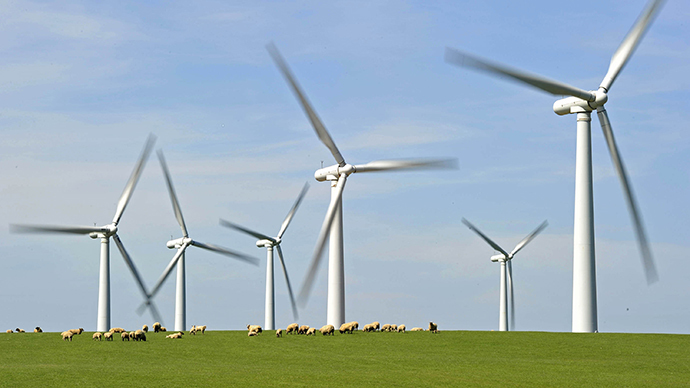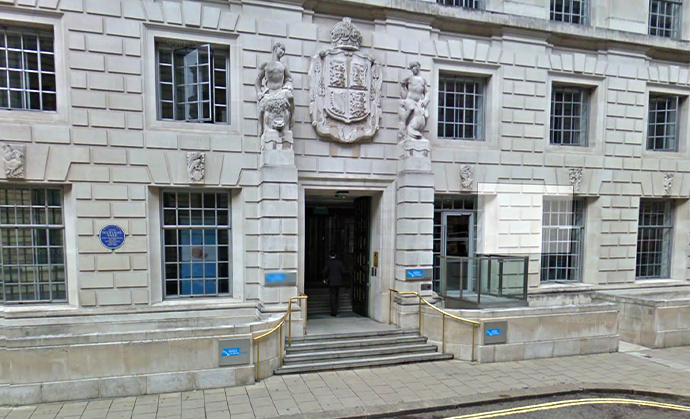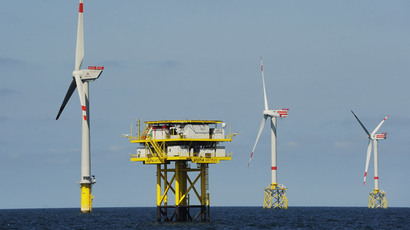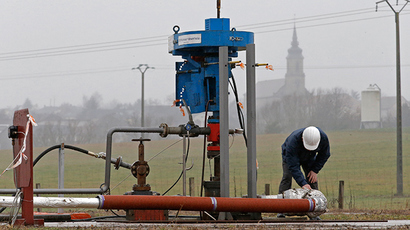No power to the people? UK govt watchdog blocks new grassroots energy co-ops

The British government’s financial watchdog has been accused of blocking new community projects aimed at challenging the dominance of big energy corporations.
In the past six weeks, the Financial Conduct Authority (FCA) has prevented a number of new applications for energy co-ops on the grounds that they did not have enough members to participate.
However, campaigners argue this has not been an issue for green energy co-ops in the past.
Mike Smyth, chairman of the Energy4all group told The Guardian that the decisions to block new co-ops came “out of the blue”.
“The government’s policy is that all new renewable energy generation from next year should be partially or more owned by a community energy organization,” he said. “And the FCA is actively undermining this policy by removing the most appropriate business for that. It makes things more difficult, stifles innovation, and precludes participation by people in the energy sector.”
Further criticizing the decision was shadow energy minister Tom Geatrix, who sent a letter to FCA chief executive Martin Wheatley, warning that it could put the future of alternative energy supplies at risk.
“This sudden change threatens a model that combines the twin goods of de-carbonisation and community involvement in energy,” he said, adding “The FCA must urgently reconsider their approach – and [Secretary of State for Energy and Climate Change ] Ed Davey needs to wake up and get a grip to prevent lasting damage to the prospects of more community energy projects in the UK.”
However, a spokesperson from the Department of Energy and Climate Change said the root of the problem was whether the co-operative proposals were within the FCA guidelines, which state that members have to produce and sell services to its members. Because energy co-ops tend to be too small to deliver power to their members, they would have to sell it directly via the National Grid.
“We are now working with the FCA to ensure the right balance is struck between member protection and realizing the enormous potential of community energy,” the spokesperson added.

Thousands of towns and villages in the UK have set up green energy co-ops in recent years, generating clean electricity using solar panels, wind turbines and other environmentally friendly technology.
Davey said he wanted to see “nothing short of an energy revolution” following a visit to Repowering London, a community solar scheme at a tower block in Brixton, South London.
Other politicians, including the former climate change minister Greg Barker, said such projects were necessary if Britain was to “break the grip of the dominant big energy companies.”
The UK’s energy market is currently dominated by six major suppliers: SSE, British Gas, E.ON, Scottish Power, npower, and EDF Energy, all of which have announced major price increases since 2010. As a result, thousands of Britons are struggling to keep up with their energy bills, despite government attempts to regulate the market.
The structure of the UK’s energy sector has led many analysts to suggest the companies are taking advantage of their dominance to keep prices high as a way to reap larger profits.
Earlier this year, the UK’s energy regulator Ofgem called for an investigation into the Big Six, following accusations of collusion and price fixing in the energy market, artificially increasing the price of energy to consumers.
According to the report produced by Ofgem, increased profits recorded by the UK’s major energy suppliers have “intensified public distrust of suppliers” and “highlighted the need for a market investigation”.
More recently, Davey set out proposals to make energy price-fixing a criminal offence, in which company directors could face jail time if they are caught rigging the market.
"The government is doing everything it can to help consumers by increasing market competition to drive prices down," Davey said.
The proposals, which may become law by 2015, would mean UK energy providers would be treated in the same way as large banks.














